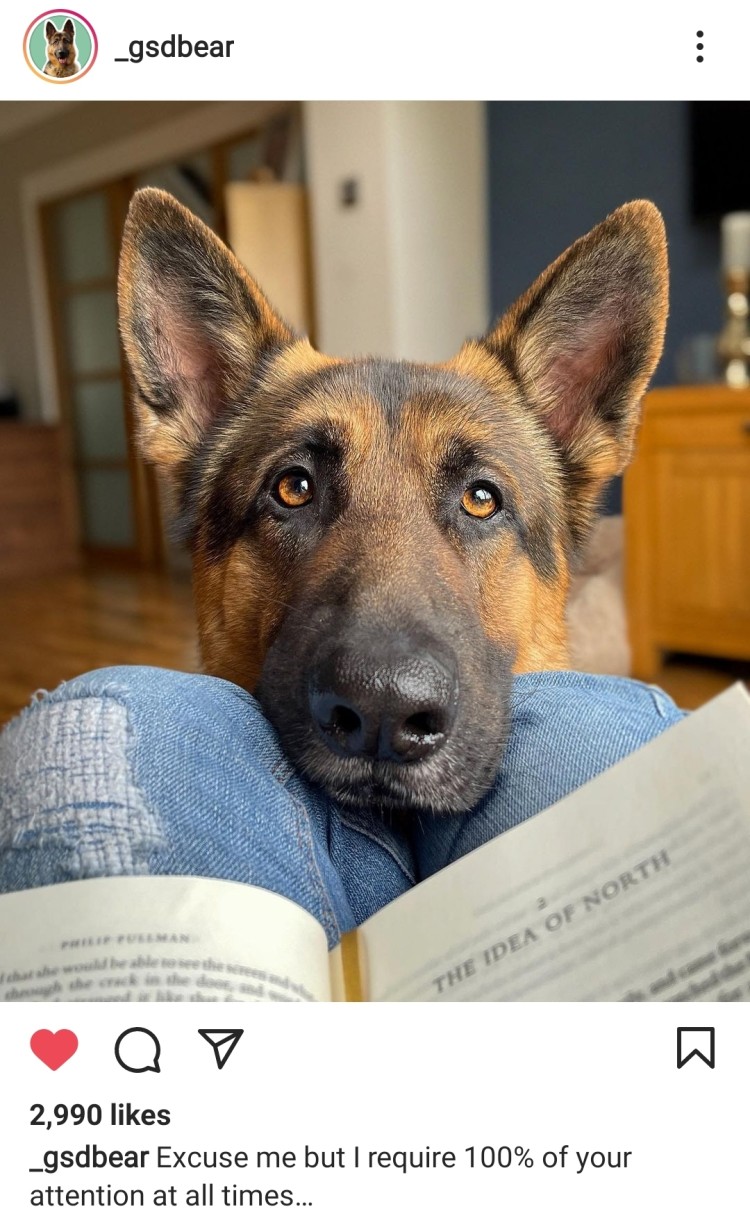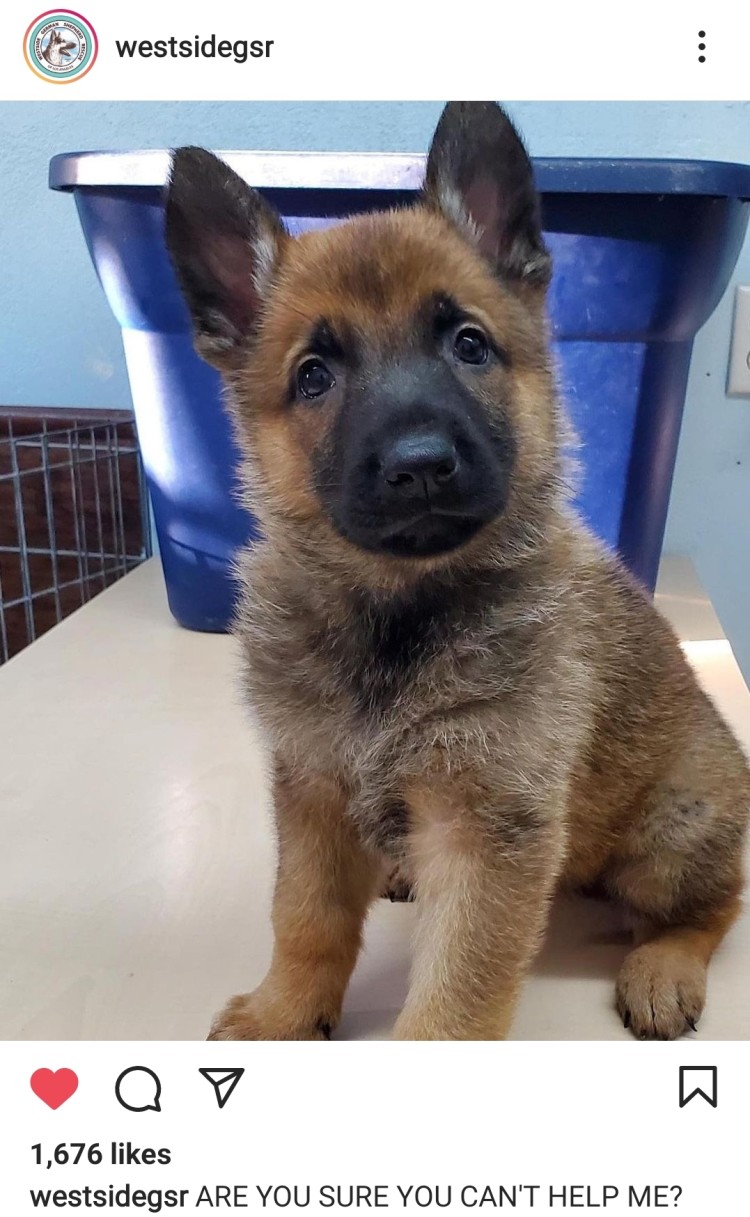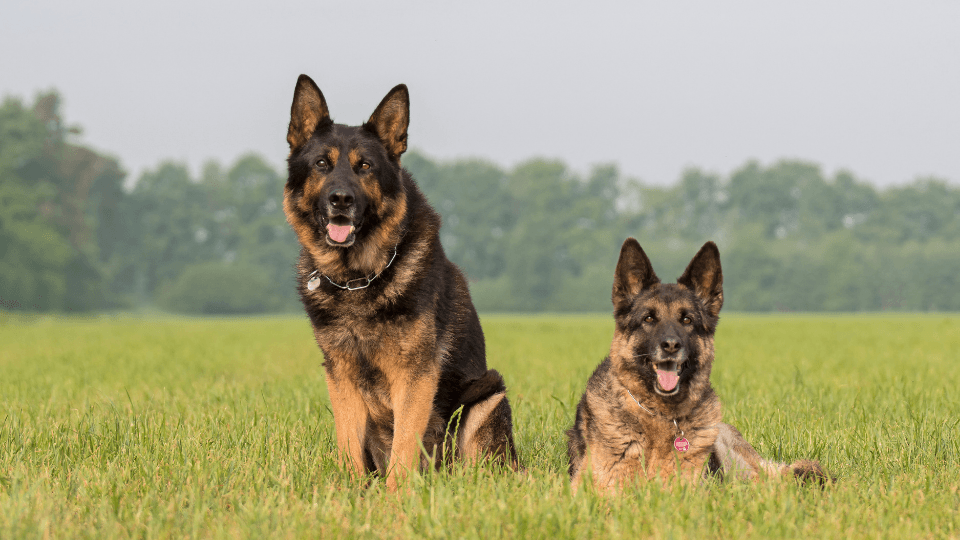Originally developed to herd sheep, German Shepherd dogs have developed into much more than working dogs. This popular breed is tireless, intelligent, and athletic. In addition to their common roles in public service, German Shepherds often make great family dogs because they tend to be gentle, sociable, playful, and protective of loved ones and their homes.
That said, every breed has considerations that potential pet parents should be mindful of. Keep reading to learn all about German Shepherd traits, breed history, care needs more to determine whether this breed is right for you.
Table of Contents
- German Shepherd traits
- German Shepherd history
- German Shepherd care
- Common German Shepherd health issues
- Where to get a German Shepherd
- Key Takeaways
Pro Tip: German Shepherds care a great deal about the humans in their pack. Return the appreciation with a pet insurance plan that can provide affordable access to gold-standard health care in case your dog ever gets sick or injured.
German Shepherd traits
Appearance
The size of a full-grown German Shepherd is between 75 and 95 pounds, ranging from 22 to 26 inches in height at the shoulders. Their muscular bodies are lean and agile. An extended muzzle and tall, erect ears are two iconic German Shepherd traits that make these dogs easily recognizable.
GSDs come in different colors such as brown and black, as well as different color combinations like black and tan, black and silver, black and cream, red and black, etc. Most German Shepherds have distinguishable black mask marking on their faces, and many of them also have black backs. Reputable breeders don’t breed GSDs with white, liver, and blue-colored coats.
This breed can be short-haired, medium-haired, or long-haired. Long-haired GSDs generally need more grooming maintenance than the short-haired variety.

Shared by @_gsdbear on Instagram
Personality and behavior
The German Shepherd temperament can be described as intelligent, curious, and obedient. Their loyalty is fierce and unwavering with a wariness of strangers. Because they are also highly watchful and alert, German Shepherds make great guard dogs. These dogs aren't inherently aggressive, but their personality may seem aloof, reserved, or stubborn.
If well-trained and exposed to children from an early age, German Shepherds are usually great with kids and can act both as their companions and protectors. They can also live peacefully with cats and other pets if they are taught to do so from puppyhood with appropriate training and desensitization. Introducing a mature German Shepherd to a household with other pets or children can be more challenging and you might need to hire a professional trainer to help.
Lifespan
On average, a German Shepherd dog lives between 9 and 13 years. While this number will differ based on health and lifestyle variables, it’s the standard expectation when factoring in breed size and common hereditary conditions GSDs might face.
German Shepherd history
Developed from old farm and shepherd dogs, the German Shepherd breed was first introduced in Germany in the late 1800s. This large-sized breed was created by Captain Max von Stephanitz with an aim to develop a German breed dog that would be unmatched as a herding dog.
During the two World Wars when all things German were stigmatized, the "German" title was elided and the breed name changed to Shepherd Dog or Alsatian Wolf Dog (a name that is still used in some regions, especially in Europe).
Worldwide interest in GSDs started growing in the early 20th century and the breed was recognized by the AKC in 1908. Today, German Shepherds are the 3rd most popular dog breed, according to the AKC's 2020 list. (Who got 1st and 2nd place? The Golden Retriever and French Bulldog, respectively.)
German Shepherd care
Training and exercise
It’s recommended to start socializing and training early, ideally when your German Shepherd puppy is about ten weeks old. This, along with continued obedience training, will make sure that your pet grows into an adaptable and well-behaved adult. This breed is hard-working, very intelligent, and they like to learn new things, so consistent training and rewards should give excellent results.
GSDs are athletic and very active, so they require plenty of exercise. Lack of physical activity can result in frustration and the development of negative, potentially destructive and dangerous behaviors. Participating in activities such as tracking, agility, and herding provides great physical exercise and mental stimulation. Small puppies should have short walks and play sessions every day.
Grooming
German Shepherds have a double coat with a harsh and dense outer coat and a softer undercoat. They’re quite easy to maintain, requiring a quick brushing two or three times a week to remove loose hairs. There are periods when they shed more profusely and require more frequent brushing in order to control the amount of shed hair. GSDs need a bath occasionally, but it’s important to trim or dremel their nails every month.
Nutrition
Generally, German Shepherds need up to two cups of dog food twice a day but consult your veterinarian for a proper diet plan that provides balanced nutrition for your dog’s unique needs. They are the best source of information on how much and you should feed your GSD as they grow and mature.
Avoid feeding table scraps of human food as they can cause stomach upset in dogs, especially when it comes to high-fat foods. If you want to expand your GSD’s diet, small quantities of eggs, yogurt, or cooked vegetables can be beneficial, but be sure to familiarize yourself with the list of food dogs can and can’t eat. Remember to provide access to fresh water at all times.
Common German Shepherd health issues
As with all purebreds, there are common health issues in German Shepherds that the breed is prone to developing. Some of the most prevalent medical conditions affecting GSDs include:
- Elbow dysplasia - A disease most commonly implicated in front limb lameness
- Hip dysplasia - An abnormal formation of the hip socket that causes the thigh bone to pop out
- Elbow hygroma - A fluid-filled swelling that occurs over the elbow joint
- Degenerative myelopathy - A progressive disease that affects the spinal cord in older dogs
- Gastric dilatation-volvulus - Commonly associated with large meals and gas causing the stomach to rotate
- Von Willebrand disease - Causes blood to clotting insufficiencies resulting in inappropriate bleeding
- Degenerative spinal stenosis - A painful disease affecting the spinal cord
Not all German Shepherds develop these dog health issues, but it’s important to become aware of them if you’re considering getting this breed.
Pro Tip: Enrolling your GSD in pet insurance could save you money by reimbursing you up to 100% of vet costs paid out of pocket.

Shared by @WestsideGSR on Instagram
Where to get a German Shepherd
If you want a German Shepherd puppy, begin by contacting the following organizations:
- German Shepherd Rescue Association, Inc.
- German Shepherd Rescue and Adoptions
- German Shepherd Dog Club of America
Finding a German Shepherd dog can be quite easy, but be careful of internet scams and puppy mills. When researching reputable breeders, consider what their litters are bred for. Some lines of GSDs are intended to make great family dogs, whereas others may be bred as working dogs and could be more challenging to raise indoors.
Before you buy a German Shepherd puppy, always remember that there are thousands of abandoned dogs in shelters who are in need of a loving home — including many GSDs.
Key Takeaways
- Originally bred to herd sheep and protect flocks, German Shepherds are known for their strength, loyalty, and intelligence.
- German shepherds are quite active so they need plenty of daily exercise; otherwise, they can become mischievous or nervous.
- Like many other dog breeds, GSDs are prone to particular health problems such as canine hip dysplasia, elbow dysplasia, elbow hygroma, etc.
- Make sure to do lots of research before you get a German Shepherd to figure out whether it is the right dog for you.
